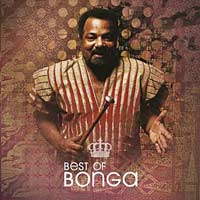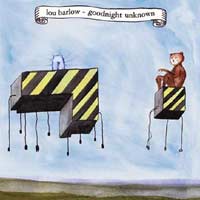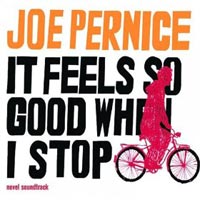M&G reviewers pick through the latest albums from, among others, N’Dambi, The XX and Ba Cissoko.
Ba Cissoko
Séno (Sheer Sound)

Guinean quartet Ba Cissoko introduced themselves in 2005 with their debut album Sebalon, a magnificent fusion album that was aptly described as “West Africa meets Jimi Hendrix”. The interlocking riffs of acoustic and electric kora, coupled with guitar, bass and drums, created an African psychedelic masterpiece. Their 2006 Electric Griot Land offered more of the same, even referencing Hendrix in its title. The band’s third album, Séno, offers a more delicate set of songs that brings reggae and Latin influences into the mix. Séno is less of a fight-for-your-right-to-party and more kick-back-and-put-your-feet-up kind of album. Badinia has some great wha-wha guitar, whereas Chauffeur Taxi is a gentle acoustic Caribbean-meets-West Africa-styled song. Bambo, with its fuzz-guitar is the closest the band gets to their older material, despite being sedated under an infectious reggae groove. The verdict: Séno is nowhere near as impressive as their first two albums, but you can’t fault the band for pushing in new directions, no matter how disappointed it leaves you. — Lloyd Gedye
Bonga Best of (Sheer Sound)

Since 1972, Bonga has been at the forefront of Angolan music, having released a whopping 30 albums. This compilation combines his most famous songs, selected from his debut album Angola 72 all the way up to his 2008 release Bairro. Although he was originally a 400m sprinter for Portugal, Bonga became an outspoken supporter of Angola’s independence, which led to his exile to The Netherlands. Here he launched his music career in 1972. Angola 72‘s lyrics resulted in a warrant for his arrest, but after Angola gained independence in 1975, he was celebrated. His music blends Portuguese folk with elements of Semba, Kizomba and Latin music. This best-of compilation is heavily weighted towards Bonga’s later music, with 15 of the 18 tracks recorded after 2000. This is disappointing, because the early tracks such as Mona Ki Ngi Xica from Angola 72 and Sodade from Angola 74 are definitely the highlights. On the whole, it’s a solid compilation with a few rarities and previously unreleased tracks. – Lloyd Gedye
N’Dambi
Best of Pink Elephant (Universal)
N’Dambi’s career started as an underground musician about 10 years before mainstream ears caught on. She performed as a backing singer for Erykah Badu, where she sang her lungs out, and gained international exposure. Her soulful, jazzy voice takes you back to the days when singing was reserved for the vocally talented and not the well connected. Don’t get me wrong, Pink Elephant is not all old school, dim lights and cigarette smoke, but it combines what most have come to love about N’dambi — her classic voice meshed with relevant and modern lyrics. Like her name, which means “most beautiful” in a central African language, so is the album. If it’s true that musicians write songs based on their own experiences, then N’dambi has had quite a bit of male-relationship drama. For that reason, many women should relate and buy Pink Elephant, N’Dambi’s fourth, accomplished album. — Karabo Keepile
Lou Barlow Goodnight Unknown (EMI)

Lou Barlow has always been a man of many coats. That’s why, during various points in his career, he could be found fronting Sebadoh or The Folk Implosion and sometimes playing bass in the great Dinosaur Jr. Listeners who have sampled Dionsaur Jr’s two post-reunion albums will agree the band is as great as ever, which makes it a puzzling decision by Barlow to go solo for his new album Goodnight Unknown. As a solo artist Barlow has managed just one album before this, 2005’s Emoh. However, one listen to Goodnight Unknown, and the decision to release a new solo album all starts to make sense. Barlow is a seriously talented songwriter and this acoustic-based lo-fi album really does present a different side of his talent, while still hinting at his coloured past. First single Gravitate reminded me of New York band Soul Coughing’s early work, which makes sense considering that Soul Coughing bassist Sebastian Steinberg features on it. Other guests include The Melvin’s drummer Dale Crover, who is excellent throughout, and American singer/songwriter Lisa Germano, who contributes backing vocals on the delicate Too Much Freedom. However the highlight has to be One Machine, One Long Flight, which sees the band exploring some noise-folk. This is an accomplished and rewarding listen. — Lloyd Gedye
Farryll Purkiss
Fruitbats and Crows (Sheer Music)
Talented singer-songwriter Farryll Purkiss certainly knows how to transfer emotions into good music. Purkiss, who hails from Umhlanga, certainly has that laidback folk sound that will have the same effect as a chilled margarita on a hot summer evening as he picks his way through gentle bass lines. The album, which has a very tight and professional sound, is his second, but he took his time releasing it. The result is a much more mature sound and he has played around with subtle influences. It hits the notes in all the right places and Purkiss’s soothing, folksy voice, creates some lovely music. He sings about life and his experiences, which certainly is not boring. Yet it failed to rise above the clutter of life and remained beautiful background music that doesn’t dictate to be listened to. But that is perfectly all right if all you want is just a chilled experience to go with a balmy summer night. — Yolandi Groenewald
The XX XX (Just Music)
The XX’s debut album took everyone by surprise, and with good reason. It’s not often that a band releases a debut album as remarkably mature and refined as The XX. Coming across as the bastard child of early New Order and the Young Marble Giants — with hints of early Portishead’s sexiness and Radiohead’s ambient guitar, circa 1997 — The XX’s songs are drenched in seductive lyrics of love and heartbreak. When Oliver Sim croons: “Please don’t say were done/ When I’m not finished/ I could give you so much/ Make you feel like never before” on Heart Skipped a Beat, there is just no denying the chemistry of this band and this album they have so expertly crafted for the lovers of the world. Let The XX into your world and soon you won’t be able to imagine life without them. — Lloyd Gedye
Skomplazi
Zulu Love Letter (Independent Music Distributors)
Skomplazi are best known for their one-time party hit, Skhaba mabhodlela, a few years ago. After that, they vanished. But here they are again, and I can’t say I’m impressed. First of all, the title Zulu Love Letter sounds too common — I think somebody has already beaten them to the use of this love-letter angle. Secondly, the songs sound the same, with old, tired verses. Lastly, I think the group should finally decide what they want to do: kwaito or house? Ten years after the release of the Yizo Yizo kwaito album (one of the best to date), I find it hard to believe that latecomers like Skomplazi fail to take the beat of the township to a level it deserves. Askies guys, Kwaito needs a lifeline, not another lot of chancers. — Monako Dibetle
Joe Pernice It Feels So Good When I Stop (Just Music)

Joe Pernice wrote a book, called It Feels So Good When I Stop. And then he wrote a soundtrack to the book. It’s as traditional as singer-songwriter on guitar and solo vocals could possibly get. The “novel soundtrack” is a sweet thought, but without the book, it’s a bit of out of context. The first thing I thought about this album is that Pernice must really like Badly Drawn Boy, but isn’t as good as him. He also reads excerpts from his book, which seems a bit conceited, and makes the album far too much about Pernice — almost like you need to be one of his friends or fans to play the album. Each song sounds pretty much like the one before. This record sounds like a set Pernice played to his nearest and dearest at a dinner party, and was coaxed by good (bad?) friends into recording. His rendition of Chim Cheree from Mary Poppins is quite cool, and original, as far as covers go. Chevy van has a nice hook in the chorus. Other than that, let’s hope Pernice is a more interesting writer than he is a musician, for his sake. — Ilham Rawoot